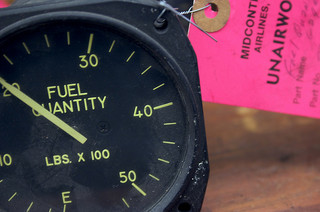
Automation is the key. With the right fuel management system, you can put an end to direct fuel losses such as:
- Incorrect dispensing. Once the wrong type of fuel is moved into a vehicle, it’s lost. You can’t exactly retrieve it, and it could cause problems for the vehicle.
- Theft. No one likes to believe it could happen, but leaving yourself open to unintentional or deliberate theft is simply not worth the potential cost.
A fuel management system can help you put an end to indirect fuel losses, too – those seemingly unexplainable disappearances. No more:
- Misallocation that confuses accounting, making it hard to balance your books or accurately analyze expenditures.
- Wastage due to inefficient record-keeping. Say goodbye to less-than-optimum fuel mileage, failure to meet regularly-scheduled maintenance needs and missed engine error codes that could indicate serious problems likely to escalate if left unaddressed.
- Wastage through inefficient driver behaviors such as unthinkingly long idle times, snappy power take-offs or other driving techniques, even poorly planned travel plotting that zigs and zags, wasting both time and fuel.
Incorporating an automated fuel management system enables you to capture the data necessary to closely monitor and control your fuel from the get-go, so you always know where your assets are and can carefully track their disposition. It works for any liquid, gaseous or alternative pump-able fuel. Adding Syn-Tech’s FuelMaster Automotive Information Modules (AIM2) to an existing FuelMaster system can further streamline operations and significantly boost savings long-term.
You get more accurate information in real time. That means you can quickly identify and correct potential problems to keep your operation running more smoothly, improve driver and crew training and also make better forecasts and planning decisions. The ability to reduce or eliminate every type of fuel loss gives you more confidence in your numbers, more peace of mind about your operation and a stronger bottom line.
What would you be able to do with the money you save from cutting fuel losses?
Photo Credit: Heidi Elliott
